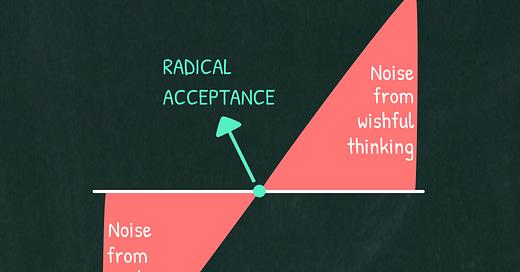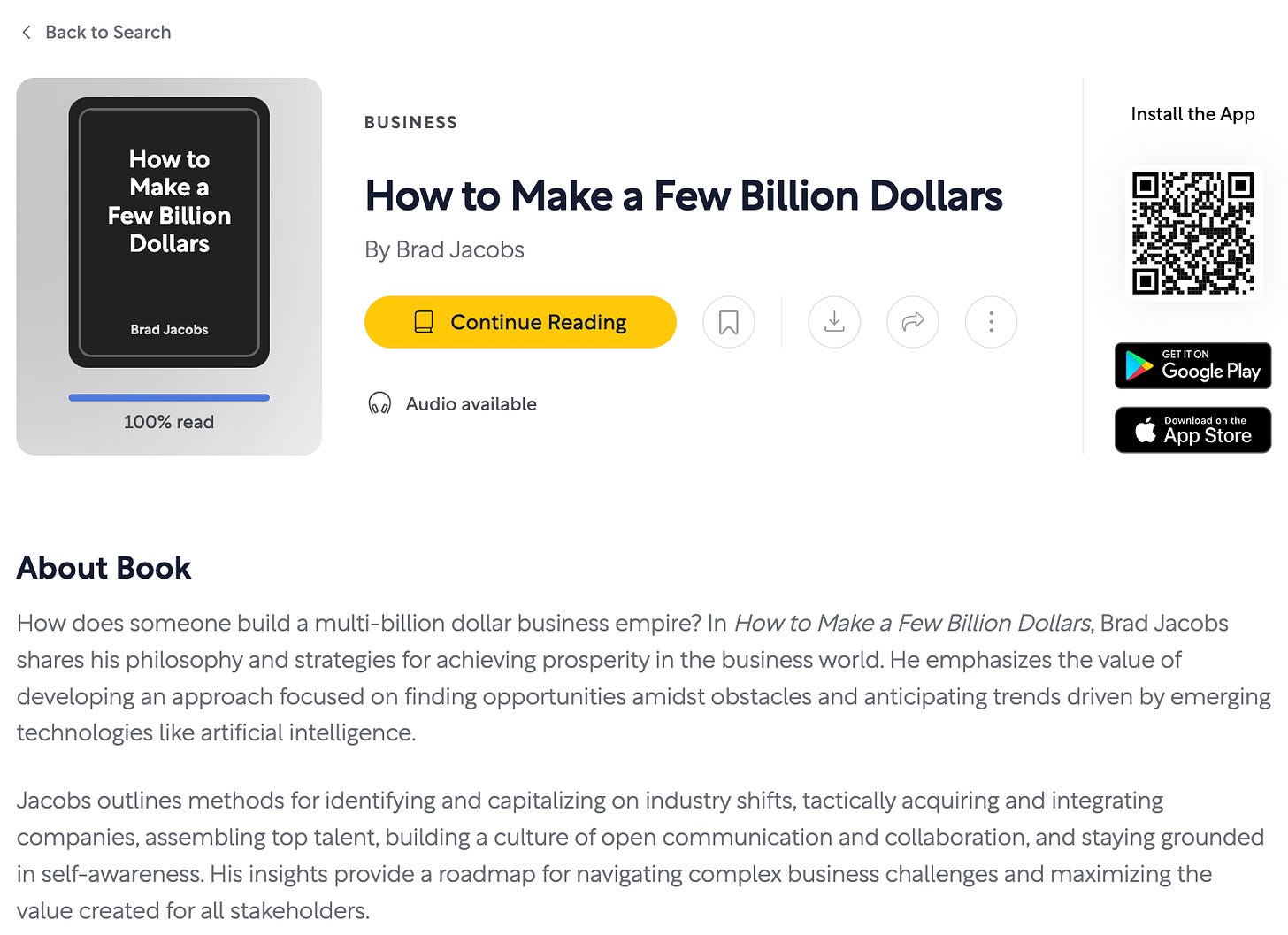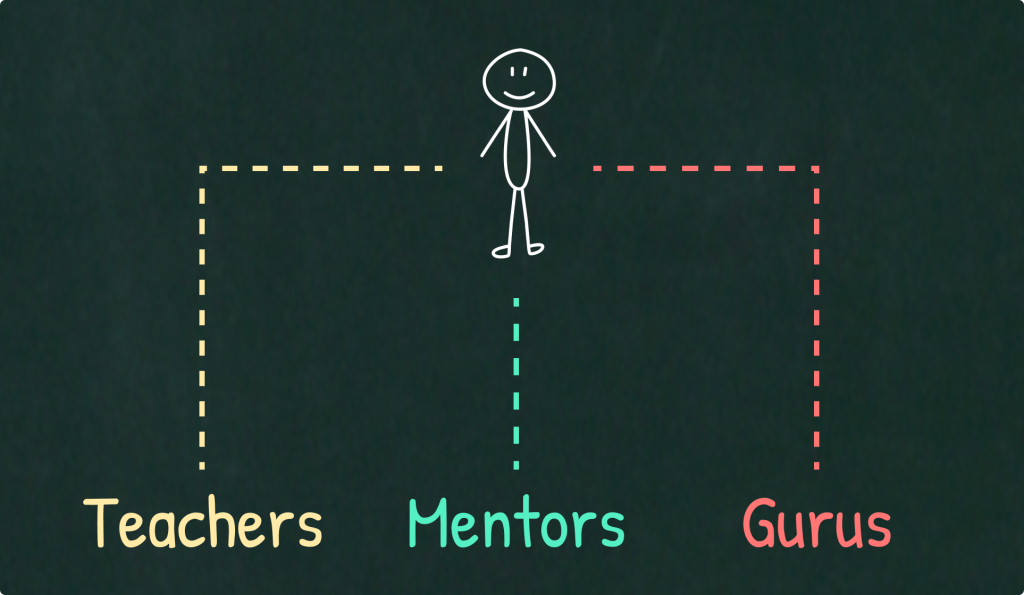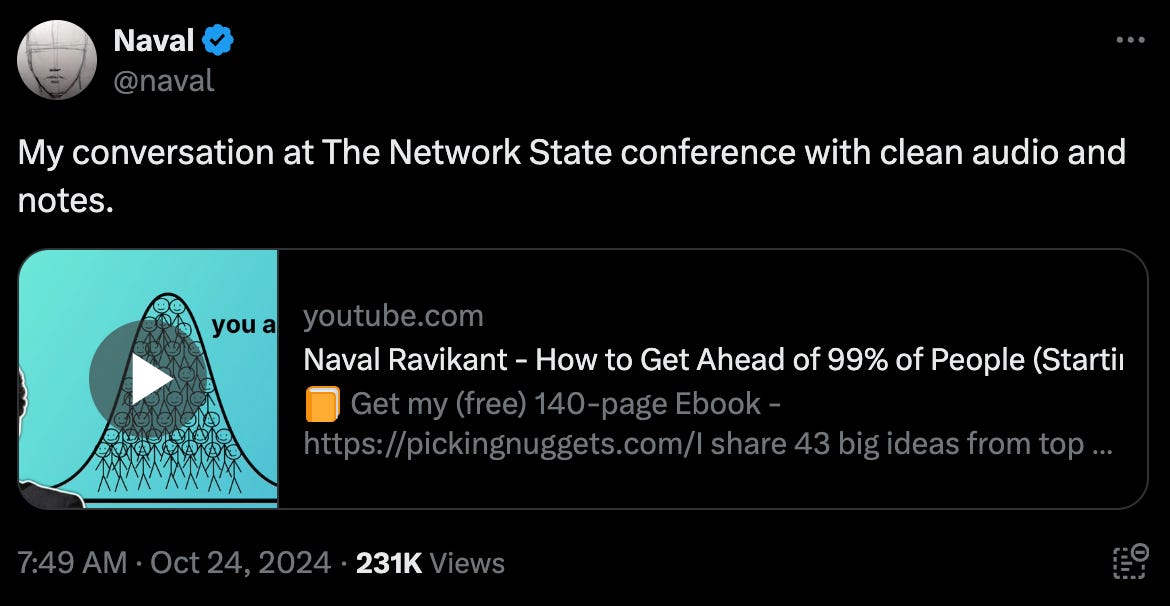The Philosophy That Transformed Brad Jacobs's Life
Nugget by Brad Jacobs (Founder of XPO Logistics)
Hey friend!
For today’s letter I picked a nugget from the renowned entrepreneur Brad Jacobs, on his book How To Make a Few Billion Dollars.
He talks about a Cognitive Behavioral Therapy that greatly influenced his life and his business career. And I realized it’s perfectly consistent with the teachings of Buddhism and Stoicism!
👤 Doers
💡Nugget
🟠 Brad Jacobs:
Accepting your own imperfections is the gateway to an even more daring mindset: accepting the world as it is, not as you wish it would be.
This is another fruit of my adventures in cognitive behavior therapy. About 20 years ago, my wife and I went to some workshops on mindfulness led by Marsha Linehan, whose techniques incorporate a core principle she calls radical acceptance. This boils down to being fully present in the moment and accepting reality. It requires that you let go of the illusion of control by acknowledging the facts as they are, even though you may want them to be different.
"What we wish to be true clouds our perception of what is true."
- Naval Ravikant
“How do you find peace?" I ask.
"I say 'yes,'" he says.
"To all that happens, I say 'yes.”
- Kamal Ravikant (Naval's brother and author of the book Love Yourself Like Your Life Depends On It)Radical acceptance has many practical applications in business. For the oil traders I trained, it was, “Block out how much you won or lost on your trade and focus on the best thing to do right now. If you think the market’s going up, buy more. If you think the market’s going down, sell—and make sure you can quantify the risk involved in each action. It’s that simple.”
"Finish each day and be done with it. You have done what you could. Some blunders and absurdities no doubt crept in; forget them as soon as you can. Tomorrow is a new day. You shall begin it serenely and with too high a spirit to be encumbered with your old nonsense."
- Ralph Waldo EmersonRadical acceptance quiets the noise created by yesterday’s decisions and today’s wishful thinking. It allows you to make a logical, forward-looking decision based on what’s likely to happen next—that and risk management are the big, relevant considerations. Otherwise, you’re just gambling, and most gamblers lose.
Here’s a story about radically accepting a $500 million loss from when I ran United Rentals. It was the late 1990s, and my ears perked way up when Congress enacted TEA-21, the Transportation Equity Act for the 21st Century. In theory, this legislation was going to allocate about $600 billion to rebuild the nation’s infrastructure, beginning with roads, bridges, and tunnels. That’s a lot of money, even for the federal government.
Seeing such profuse funding up for grabs, I started scooping up big road-rental companies—the ones that provide barricades, cones, striping, and the like. Then I waited for the market to come to me, which in an ideal world would have happened in short order. But this was the real world, and only about a third of the allocated government funding was spent, and that was in dribs and drabs over time.
“As I mature, I look back on all the times I thought I had life figured out and realize I got some big things wrong. That’s growth.”
My decision turned out to be a huge mistake, and there was no point in compounding it. We ended up selling those road-rental companies at a half-a-billion-dollar loss because it was the best way forward under the circumstances.
👉 Book - How To Make a Few Billion Dollars
"REALITY IS MY DRUG. THE MORE I HAVE OF IT, THE MORE POWER I GET AND THE HIGHER I FEEL."
- 50 CentLearn more from Brad Jacobs at Shortform!
They have a concise breakdown of his book How To Make a Few Billion Dollars.
I personally use Shortform to quickly learn the best ideas from thousands of non-fiction books, and it’s been invaluable for boosting my rate of learning!
Get your 5-day free trial and 20% off with my affiliate link - shortform.com/littlealmanack
✍️ New Essay
I recently co-authored (with Brian David Crane) an essay in which we explored the differences between teachers, mentors, and gurus.
Here’s a quick Summary Guide of the Essay:
1. Avoid being a follower. Instead, be a student.
A follower is someone who blindly accepts whatever idea some authority feeds him.
A student is someone who takes ideas and advice but verifies them for himself to assess their truth. What he does is the product of his own conclusion. Moreover, he seeks to understand ideas rather than memorize them.
2. Be very selective when deciding whom to learn from. Understand that mentors (teachers with mastery of their skill) are an invaluable source of knowledge, whereas teachers with only an academic background are not particularly great (especially outside of Maths and Science).
3. To associate with a mentor, invest time and effort in meeting the mentor’s needs. You have to give value to get value in return.
If you are curious, you can read the full piece here (for free) - https://spreadgreatideas.org/contrasts/teachers-vs-mentors-vs-gurus/
💥 Stuff I Loved
And my latest YouTube video, shared by Naval himself :)
(Click here to watch the YouTube video!)
I hope you enjoyed today’s edition!
Happy Friday ;)
Julio xx

















Nice post Julio as always!!
Congrats on the repost from Naval!
Your work is really really useful!
Your graph, although unrelated, reminded me this https://m.youtube.com/watch?v=fLqzYDZAqCI
Have you seen this before?
Great post Julio. Have you read the book "Radical Acceptance" by Tara Brach?